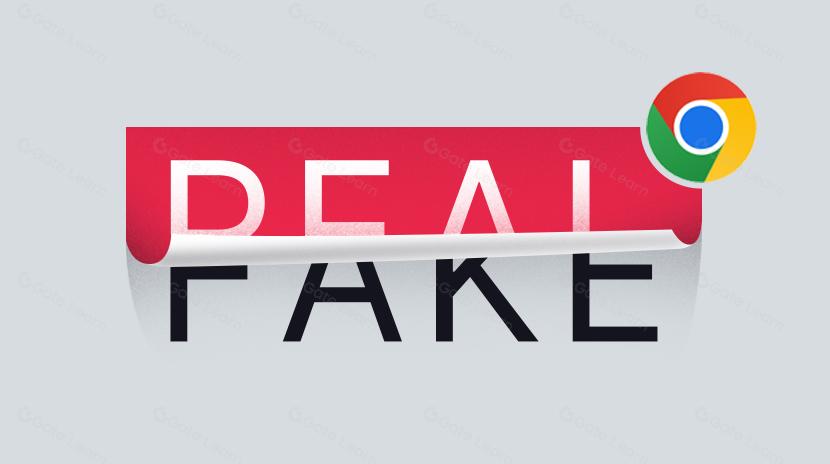auditor definition

What Is an Auditor?
An auditor is an independent professional tasked with reviewing and reporting on the integrity of financial, operational, or technical systems.
In the crypto industry, auditors examine smart contracts (self-executing blockchain programs) and platform security configurations. Their objective is to verify that assets and permissions are properly managed, providing reliable written assessments that enhance transparency and trust.
Why Should You Understand Auditors?
Auditors play a critical role in safeguarding funds and maintaining reputational credibility.
In traditional finance, audits improve the reliability of company reports and reduce the risk of fraud. In the crypto ecosystem, where assets are always online and code defines the rules, a single vulnerability can result in immediate loss of funds. Understanding the auditor’s function helps users assess whether a project has implemented essential security and compliance measures.
For everyday users, knowing if a project has undergone independent audits—and the scope of those audits—can inform decision-making. For example, a DeFi lending protocol audited for its interest rate calculations and liquidation logic typically poses less risk; if only basic scanning was performed, significant vulnerabilities may remain.
How Do Auditors Operate?
Auditing is a “third-party health check” that follows defined methods and processes.
- Scope Definition: In financial audits, this means specifying reporting periods and account subjects. For smart contract audits, it involves identifying code versions, deployment addresses, and critical permissions (such as who can upgrade contracts). Clear scope is essential for effective conclusions.
- Evidence Collection: Financial auditors sample vouchers and perform reconciliations. Smart contract auditors conduct static analysis (semantic checks without running code), fuzz testing (using random inputs to trigger anomalies), and manual code review, focusing on permissions, fund flows, and edge cases.
- Verification & Review: For blockchain systems, auditors may reproduce scenarios on testnets or verify small transactions on mainnet to confirm function behavior. In exchange reserve proof audits, they match on-chain addresses balances to recorded accounts.
- Reporting & Communication: Audit reports typically include issue severity levels, reproduction steps, remediation recommendations, and follow-up conclusions. After critical issues are resolved, auditors issue review notes indicating any remaining risks.
Common Roles of Auditors in Crypto
Auditors are involved in code reviews, proof-of-reserves verification, and security assessments.
- Smart Contract Auditing: Auditors identify risks such as reentrancy attacks (where external contract callbacks disrupt logic), oracle manipulation (price feeds being tampered with), or excessive privileges (admins misappropriating funds). For instance, a decentralized exchange contract allowing external callbacks during settlement should implement reentrancy protection or adjust execution order.
- Proof-of-Reserves: Auditors help design and verify methodologies for proving reserve assets versus liabilities. The Merkle tree is commonly used—a hash-based structure enabling batch data verification without revealing details. On platforms like Gate, reserve addresses and Merkle tree root values are published. Users can verify their balances using leaf nodes, while auditors focus on sampling methods and matching on-chain balances.
- Security Assessments: Auditors check if multi-signature schemes are enforced, whether upgrade proxies are restricted, if operational keys are securely distributed, and whether emergency procedures are executable.
How to Mitigate Risks Identified by Auditors
Treat auditing as an ongoing process, not a one-time checklist.
- Self-Assessment: Start with a checklist—document contract fund flows, key permissions, external dependencies (such as price sources), to reduce information asymmetry during audits.
- Select Appropriate Audit Type: Small projects may begin with automated scanning and community review; for substantial funds or complex logic, choose experienced teams for deep audits and allocate time for follow-up reviews.
- Prioritize Issue Resolution: Address high-risk issues related to funds and permissions first, then optimize performance or gas fees. Submit fixes for re-audit to ensure updated conclusions.
- Continuous Monitoring Post-Launch: Deploy “timelocks” (delayed effect for changes) and alert systems; subscribe to key event logs. If anomalies arise, execute contingency plans to pause or switch logic and minimize loss.
For exchanges or custodians, regularly publish proof-of-reserves and enable users to verify account inclusion independently. Involve third-party auditors in methodology review and sampling validation to build credibility.
Recent Trends and Data on Auditors
This year’s audits focus more on on-chain verifiability and ongoing review.
Security reports over the past year show losses from on-chain attacks remain in the multi-billion-dollar range—commonly $2–3 billion according to 2025 Q3 studies (figures vary by source). This drives high-risk contracts toward multiple audit rounds combined with bug bounty programs.
For mid-sized DeFi projects, typical smart contract audit cycles last 1–3 weeks with costs ranging from $10,000–$200,000; major protocols or cross-chain systems may require over six weeks and budgets from several hundred thousand up to $1 million or more (recent six-month audit fee summaries). Budgeting and time management have become key constraints for product launches.
In 2025, exchanges using proof-of-reserves are prioritizing methodological transparency. More platforms now publish on-chain addresses and Merkle roots alongside sampling details and user verification guides. Gate offers downloadable verification tools so users can confirm their balance inclusion—enhancing external verifiability.
On the tooling side, coverage of static analysis and fuzz testing has increased; auditors now frequently combine automated results with manual review. Recent reports highlight frequent errors in permission settings and external price dependencies—suggesting teams should reduce complexity and single-point reliance during design phases.
How Do Auditors Differ From Compliance Consultants?
Both enhance project credibility but focus on different areas.
Auditors assess “factual accuracy and system security,” issuing reports based on evidence; compliance consultants focus on “regulatory and policy alignment,” offering guidance grounded in law. Auditors specialize in verification and testing; consultants emphasize interpretation and implementation.
For crypto projects, smart contract auditors scrutinize code and permissions; compliance consultants evaluate token issuance for securities classification and review KYC (user identity verification) processes against local standards. Working together ensures greater project stability.
Related Terms
- Smart Contract: Self-executing code on a blockchain that enables transactions without third-party intervention.
- Gas Fees: Costs paid to execute blockchain transactions or contract operations, incentivizing network validators.
- Staking: Mechanism where users lock crypto assets to participate in network validation for rewards and chain security.
- Virtual Machine: Blockchain execution environment for smart contract code, ensuring secure isolated operations.
- Audit: Third-party security assessment of smart contract code to identify potential vulnerabilities and risks.
FAQ
How Do Auditor Responsibilities Differ From Accountants?
Auditors primarily review and verify the authenticity of financial statements; accountants prepare and record financial data. In short, accountants “keep the books,” while auditors “check the books.” Auditors independently judge the accuracy of financial information; accountants document daily transactions according to standards. Each role requires distinct skills and responsibilities.
Why Are Big 4 Firms Important for Crypto Audits?
The Big 4 (Deloitte, PwC, EY, KPMG) are the world’s largest auditing firms with top-tier credibility and standards. Their involvement in crypto project audits significantly boosts project trustworthiness. Investors have greater confidence in projects certified by Big 4 firms due to their rigorous review processes and globally recognized standards.
What’s the Difference Between a Chartered Accountant and a Regular Accountant?
A Chartered Accountant is internationally certified after passing stringent exams and practical training. Compared to regular accountants, they hold higher qualifications and global practice rights. Their opinions and signatures carry stronger authority and legal recognition in both crypto and traditional finance.
How Should Projects Respond to Issues Identified by Auditors?
Auditors issue reports grading problems by severity (e.g., high risk, medium risk, suggestions). Projects should create remediation plans based on issue seriousness—such as fixing smart contract bugs, improving internal controls, or disclosing information. After remediation, some projects seek re-audits to obtain “unqualified opinions” confirming clear audit status.
How Can You Verify the Authenticity of a Crypto Audit Report?
First, check if the auditing firm is internationally accredited (e.g., Big 4 or reputable audit firms). Next, ensure the report details scope, identified issues, and conclusions. Finally, verify signatory identities via the firm’s official website. Watch out for “fake audit reports”—genuine documents will show firm letterhead, auditor signature, and date.
References & Further Reading
- https://www.merriam-webster.com/dictionary/auditor
- https://www.investopedia.com/terms/a/auditor.asp
- https://www.law.cornell.edu/wex/auditor
- https://www.thecorporategovernanceinstitute.com/insights/lexicon/what-is-an-auditor/?srsltid=AfmBOor5riy49CUHbMxJH8N1bOsLH7WPBK6XPi4lpwxjNOb-hxQmv5p4
- https://en.wikipedia.org/wiki/Auditor
- https://dictionary.cambridge.org/us/dictionary/english/auditor
- https://corporatefinanceinstitute.com/resources/management/auditor/
- https://www.dictionary.com/browse/auditor
Related Articles

DOGS Token Overview: Tokenomics and Airdrop Claiming (as of 2025)

False Chrome Extension Stealing Analysis
